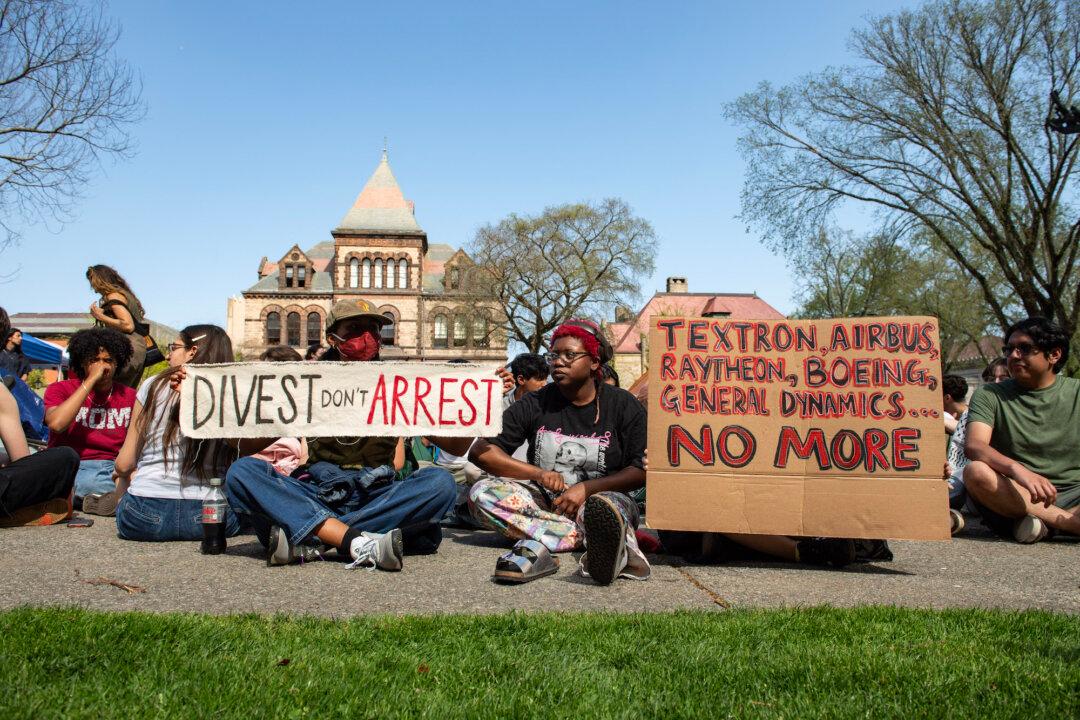Brown University has rejected demands from pro-Palestinian student activists to divest from companies that do business with Israel.
“Brown University will not divest from 10 companies described in a student-led divestment proposal as facilitating ’the Israeli occupation of Palestinian Territory,'” the Ivy League school announced on Oct. 9 following a vote by Brown Corporation, the custodian of the school’s $7.2 billion endowment.





